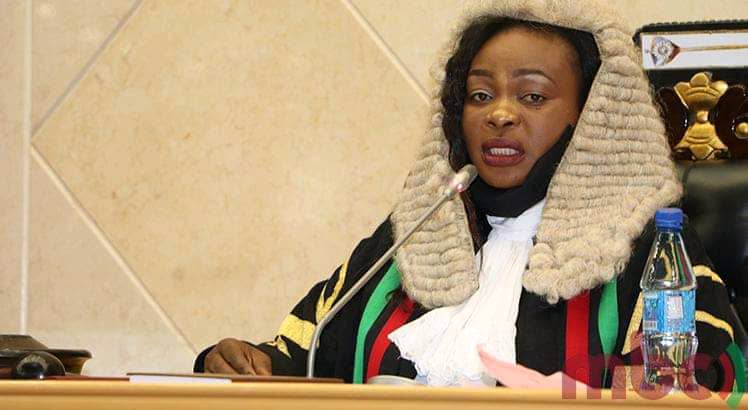By Burnett Munthali
Speaker of the National Assembly, Catherine Gotani Hara, has strongly responded to criticism from Leader of Opposition, George Chaponda, who has accused her of failing to enforce Section 65 of the Constitution.
In her remarks, Gotani Hara argued that the attack on her character and leadership is rooted not in legal failure, but in gender bias.
She stated that Chaponda’s outburst is not simply about her performance but rather stems from the fact that she is a woman occupying a position of authority.
The Speaker emphasized that it is “an open secret” that Section 65 has been historically difficult to implement, regardless of who is in the Speaker’s chair.
Section 65 of Malawi’s Constitution grants the Speaker the authority to declare vacant the seat of a Member of Parliament who defects from the political party that sponsored their election.
However, Gotani Hara explained that this provision has rarely been enforced because Members of Parliament typically obtain court injunctions that block the process.
She added that this legal and procedural bottleneck has affected every Speaker before her, regardless of gender.
“We all know this, but we know that the Leader of the House is intentionally singling me out because I am a woman,” she declared.
Her remarks come in response to repeated calls from the opposition, led by Chaponda, for her to act decisively on MPs who have crossed the floor.
Gotani Hara’s response brings to light the intersection of politics, constitutional enforcement, and gender discrimination in Malawi’s Parliament.
She pointed out that since 2014, successive Speakers of Parliament have come under fire for allegedly failing to act on MPs violating party allegiance.
None of those previous Speakers, she noted, were subjected to the kind of personal criticism that she now faces.
This, she argued, is a clear double standard driven by entrenched patriarchal attitudes within Malawi’s political system.
The Speaker’s bold defense of her position also serves as a broader commentary on the challenges women face when holding high office in a male-dominated political landscape.
As debate over the implementation of Section 65 continues, her remarks are likely to ignite further discussion on gender equity and the rule of law in Parliament.
It remains to be seen whether the standoff will push for reforms in how Section 65 is interpreted, enforced, or challenged in court.
What is clear for now is that Gotani Hara is not backing down and is prepared to challenge the narrative that reduces her leadership to her gender.
Her firm stance underscores the need for a more balanced and fact-based discourse on constitutional responsibilities, free from gender-based bias.
This development adds a new dimension to Malawi’s parliamentary politics and highlights the broader struggles women leaders face in public office.





